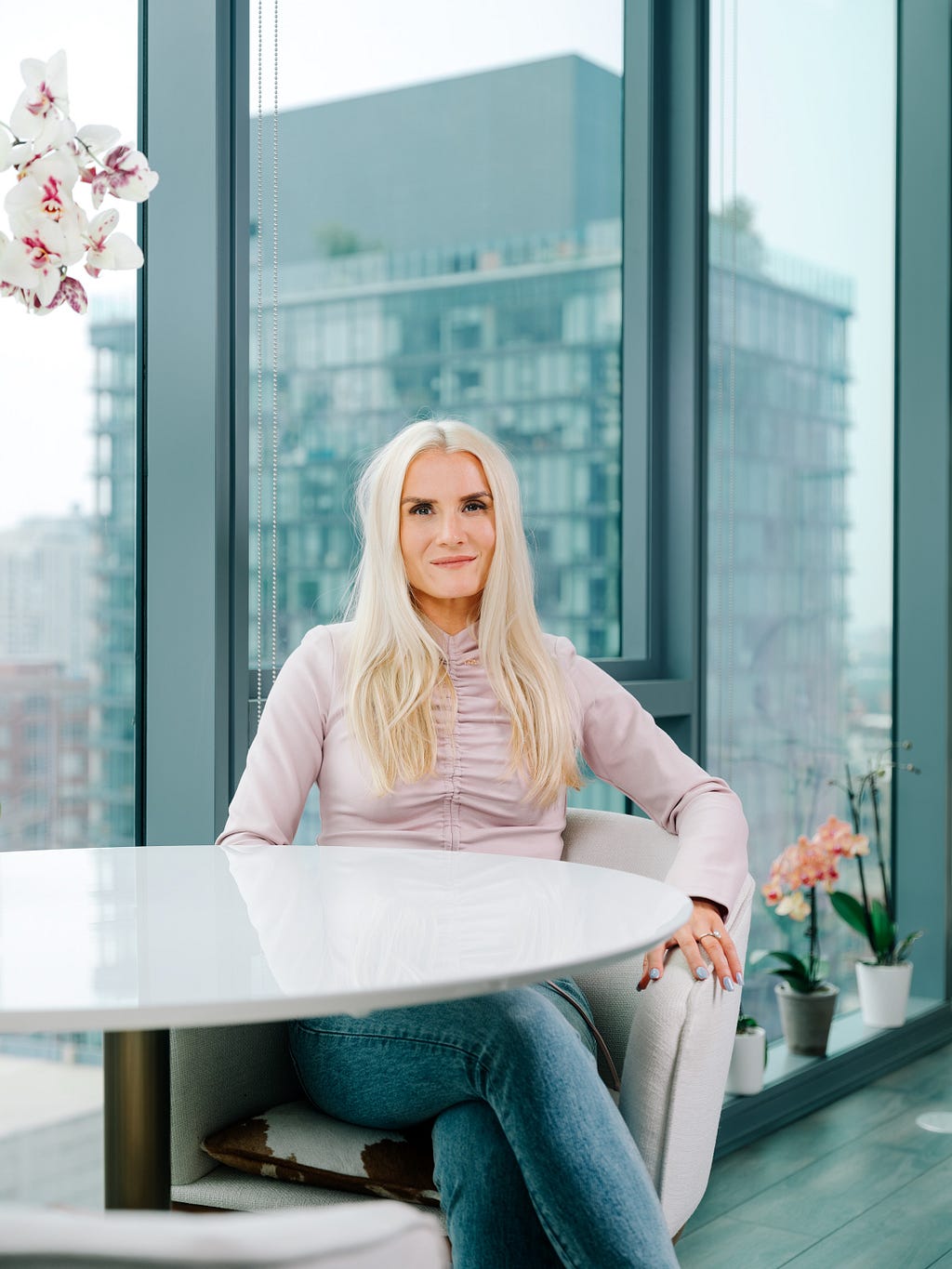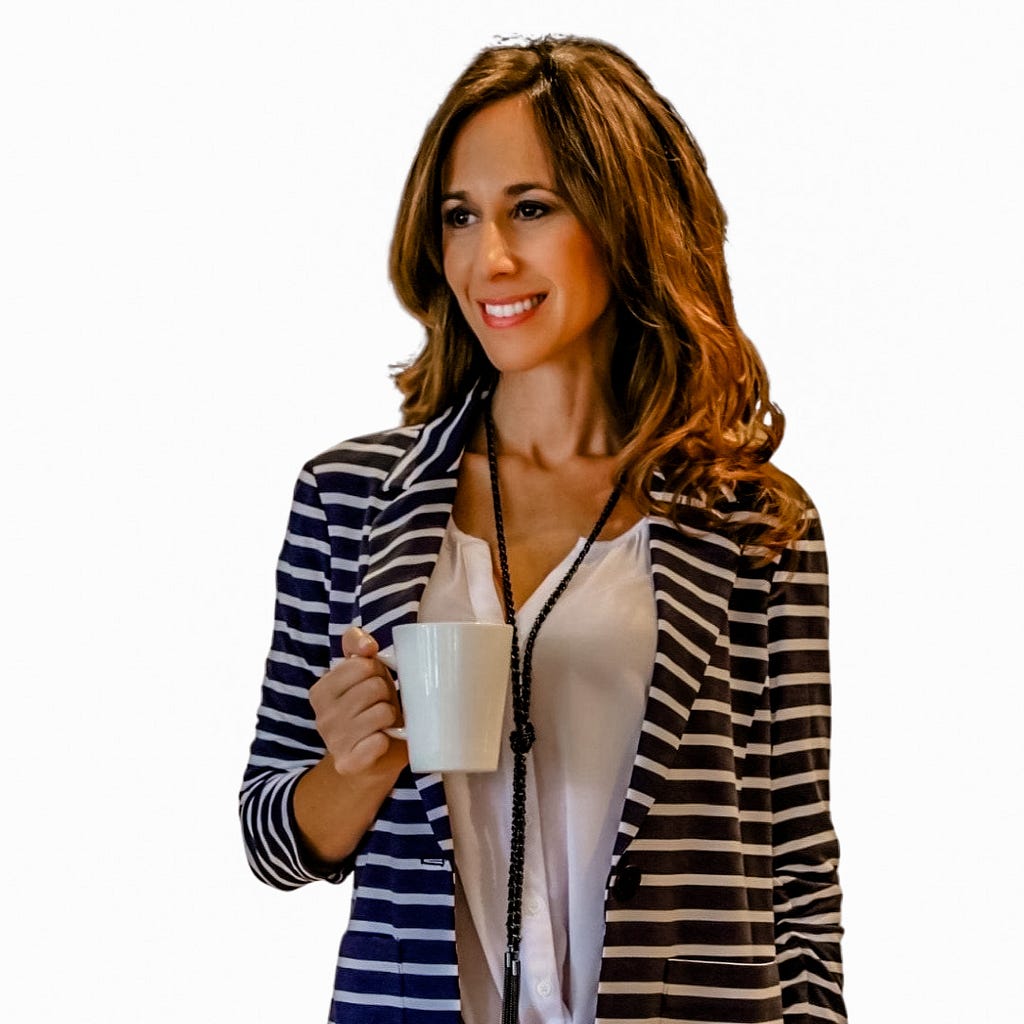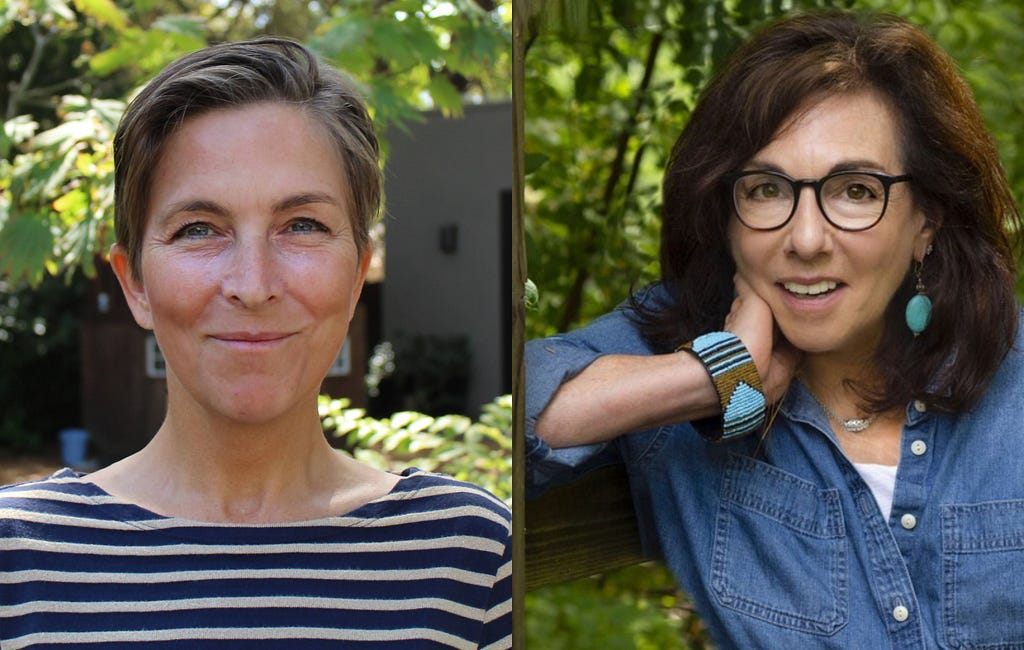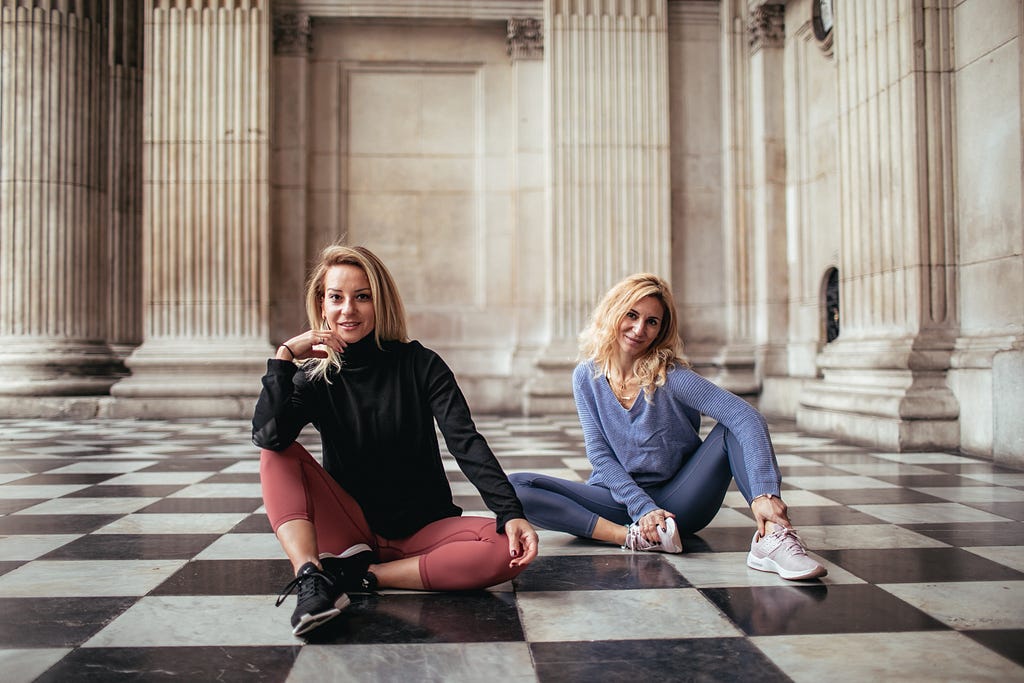An Interview With Candice Georgiadis

“Success is not final. Failure is not fatal.” Success is not a fixed destination because the outcome of an undertaking is never the final outcome. The story always unfolds another chapter, and what may have been good at one point inevitably leads to something less good. This is the beauty of life; it’s amazing, and then terrible, and then amazing again. The second part is even more important to acknowledge, understand, and truly believe if you want to be an innovator or entrepreneur. Failure is not final, and yet we fear it deeply. Every life form seems to strive to its maximum except human beings. Why? Because we are afraid to fail and therefore never start. You can only reach your highest potential when you embrace failure as an integral part of growth and life.
As a part of our series about women who are shaking things up in their industry, I had the pleasure of interviewing Ashley Thompson, Co-Founder and CEO of MUSH.
Ashley Thompson is the CEO and Co-Founder of MUSH — like oatmeal but cooler ready-to-eat oats made with simple and clean ingredients to keep you fueled throughout your day. She launched in 2015 with the conviction that easy, delicious, and nutritious food can elevate the world in powerful ways. After discovering a white space in the market while working on Wall Street, Ashley set out to create a healthy, tasty, convenient food product inspired by her favorite “hack” as a kid: cereal and oatmeal soaked in milk. Today, MUSH is the leader in its category and the line of oats with benefits are made with seven (or less) wholesome ingredients to give your mind, body and tastebuds what they need to seize the day, every day.
Thank you so much for doing this with us! Before we dig in, our readers would like to get to know you a bit more. Can you tell us a bit about your “backstory”? What led you to this particular career path?
After reflecting on what led me to where I am today, two major dots connected. In early childhood, my sister’s diagnosis with Type 1 diabetes sparked an insatiable curiosity about health and wellness. I observed her struggle physically and emotionally with her condition, and all I wanted to do was help. I turned to learning about the human body, specifically the endocrine system, as well as nutrition and the connection between physical and mental health. I became somewhat obsessive about the human experience and the body as its sacred vehicle. That obsession ultimately morphed into a desire to help people with their physical and mental health by making nutrient-dense, delicious food more accessible.
Additionally, my father embarked on an incredible entrepreneurial journey when I was two. I witnessed firsthand the “American dream”. He painted a strong mental mapping of entrepreneurship, which shaped my perspective about work, life, and the pursuit of human potential. I gravitated toward his way of life — thinking, creating, doing, resting, reflecting… repeat — and subconsciously desired the same for my own. His journey influenced me to start my own business, MUSH. The rest of my life really prepared me for the how. Building a business is hard. That’s the best way I know how to describe it. Before MUSH, I was accustomed to signing up for hard things. At thirteen, I chose to attend boarding school with rigorous academics and excelled. It was hard. I then attended a great university, studied economics and mathematics, and graduated in three years. Hard. I started my career on Wall Street as one of very few female trading analysts. Hard. I learned how to do hard things fairly well, which has enabled me to adapt and persevere on my current path.
Can you tell our readers what it is about the work you’re doing that’s disruptive?
MUSH is the cleanest, plant-based ready-to-eat oats brand on the market, made with seven (or fewer) wholesome ingredients — and no artificial anything — in order to give you clean energy and help you reach your highest potential through good nutrition. The work we’re doing at MUSH is addressing the root cause of a very real and massive problem — poor health in America — in a way that does no unnecessary harm. 32% of Americans are overweight and 38% are obese. So, 70% of us are too heavy. Nearly a third of us have diabetes or prediabetes, and more than 40 million Americans have mobility problems. Astonishingly, heart disease kills a quarter of us. And all of these medical issues were essentially nonexistent until the twentieth century.
To address the aforementioned, we make healthy food that is delicious and accessible for as many people as possible. It’s a slow process. It takes time to educate people and change their habits. It takes time to build trust with consumers. We’re a small but mighty team of MUSH advocates though, and we’re excited everyday about the opportunity in hand. We can effect real change in the world each day, one cup of MUSH at a time.
In today’s world, which is filled with perverse incentives and short-term greed, our approach is distinct, disciplined, and disruptive. In this country, we reward efficiency over effectiveness far too often, which leads to wasted resources — time, energy, imagination, financial capital — on marginally better products, services, and experiences. We are maniacal about efficiency, but sometimes what we gain in efficiency, we lose in effectiveness. I don’t believe in hyper-efficiency as a way of life. I believe in restoring and protecting human health and trust in society, and that’s exactly what we’ve set out to do at MUSH.
Can you share a story about the funniest mistake you made when you were first starting? Can you tell us what lesson you learned from that?
This one is tough. I’ve made many mistakes, some more serious than others, and I would not characterize too many as funny. I guess a more lighthearted mistake occurred when we overloaded a refrigerated truck with product. We were moving quickly, running on empty, and trying to get the job done more efficiently. Well, we got caught at a weigh station on Interstate 5 in southern California and fined. The fine wasn’t funny, but what ensued was. We had to send another three teammates in a second refrigerated truck to unload part of the product from one truck to another, all on the side of the highway. Imagine five twenty-somethings unloading a bunch of cold oatmeal on the side of a highway, with state patrol shaking their heads the entire time. All of us found it pretty amusing, though I can imagine you had to be there to get the full effect. We wasted a lot more resources taking a short cut, and we learned that there are two ways of doing things: the right way, or again.
We all need a little help along the journey. Who have been some of your mentors? Can you share a story about how they made an impact?
I have several unofficial mentors, and each brings a superpower to the table. First and foremost, my dad has been my longest-standing mentor. He’s a high learner and incredibly wise as a result. Whenever I am grappling with the human condition, I call him. I remember the first time we had a hard problem with someone on the team. He took a ton of time to listen, spent energy digesting everything, and shared unique ways of problem solving the dynamic. He also supported me emotionally. Admittedly, I was a bit distraught, and he calmed my fears. He always makes me feel better, no matter what the situation is.
Two other mentors include my executive coach Laura and one of my investors Sam. Both individuals are incredibly smart and good, deep thinkers. Laura has an ability to connect with me on so many levels and make me laugh even on the toughest days. A lot of what I am experiencing as a first-time founder/CEO is exactly that, first-time. There’s a steep learning curve, and Laura is always there to aid in the process. She has seen it in all.
Tactically speaking, Sam has incredible operational expertise. That’s actually rarer than one would think in the investment world. As an investor, he always puts his money where his mouth is, he’s like a vortex of success. He wholeheartedly champions the things he believes in and helps will them into being with his winning mindset.
All of my mentors have at least two things in common — they are trustworthy and they read a lot. Reading enables learning, and learning enables growing. My unsolicited advice to any aspiring entrepreneur is to find mentors who 1. are trustworthy and 2. read.
In today’s parlance, being disruptive is usually a positive adjective. But is disrupting always good? When do we say the converse, that a system or structure has ‘withstood the test of time’? Can you articulate to our readers when disrupting an industry is positive, and when disrupting an industry is ‘not so positive’? Can you share some examples of what you mean?
Disruption in any industry is great when it creates more benefits than consequences for our people and planet. Social media is arguably one of the most disruptive advancements in social networking, and from my point of view, has done a lot of harm on the social fabric of our great country. Apps magnify social inequities, maximizes our desire for consumption, and perpetuates a socially-isolating environment that exacerbates our anxieties in the modern world. Certainly, you get to “keep up” with everyone and anyone, live vicariously through strangers during their most perfect moments in life, and explore the world through a 3”x6” LCD screen. Is that what we want? Is that what we need? Is it healthy? Is it worth sacrificing the present moment? Is it worth our sanity? None of us are impervious to the perils of social media.
Can you share 3 of the best words of advice you’ve gotten along your journey? Please give a story or example for each.
“Don’t die wondering.” This one speaks to Jeff Bezos’s regret minimization framework. A good mode of living is to minimize your number of regrets in life. Why? Because they make you wonder. They toy with your soul and imagination. What if I just tried…. What if I listened to my heart… What if it all worked out… Discipline weighs ounces. Regret weighs tons. The truth is, no one actually regrets failure because you can always find gratitude in the journey. However, most people regret the chances they didn’t take or the opportunities they didn’t pursue. “Don’t die wondering” is my daily mantra. It’s the chief idea that empowered me to quit my fancy finance job at 24 and sell oatmeal for a living.
“Follow your gut.” This one is easy to say and often hard to do because there are common misconceptions about the gut. People incorrectly think that gut and data do not go hand in hand, but gut is actually a compilation of thousands of data points, collected through observation and experience. Human intuition is one of the most powerful decision making tools at our disposal. I used my instincts, not data, to start MUSH. Had I waited for full information, I would have started much later and probably too late.
“Success is not final. Failure is not fatal.” Success is not a fixed destination because the outcome of an undertaking is never the final outcome. The story always unfolds another chapter, and what may have been good at one point inevitably leads to something less good. This is the beauty of life; it’s amazing, and then terrible, and then amazing again. The second part is even more important to acknowledge, understand, and truly believe if you want to be an innovator or entrepreneur. Failure is not final, and yet we fear it deeply. Every life form seems to strive to its maximum except human beings. Why? Because we are afraid to fail and therefore never start. You can only reach your highest potential when you embrace failure as an integral part of growth and life.
We are sure you aren’t done. How are you going to shake things up next?
I don’t know exactly what’s next. I only know that I am not done building MUSH. How far can I go? Only time will tell. I guess what’s next is one foot in front of the other. MUSH is an inward journey as much as an outward one. I derive so much joy and satisfaction from pushing the boulder up the mountain everyday — learning about the world, life, my own limitations and how to move beyond them.
In your opinion, what are the biggest challenges faced by ‘women disruptors’ that aren’t typically faced by their male counterparts?
Some of the biggest challenges women face in business arise from societal expectations. As a woman, you’re generally not expected to win in business. You’re not even really expected to be in business past a certain age. These expectations subliminally shape our reality — our experiences, thoughts and confidence — and thus create a challenging environment in which to thrive. A simple example is the expectation that women are supposed to have children. If she doesn’t have children for whatever reason (by fate or by choice), she may be perceived adversely, which can affect her ability to show up authentically at work or build a strong social network. If she does, that may impact her probability of achieving greater accomplishments. This is just one of many expectations set by society that create a unique and challenging paradigm for most women. It’s hard to win in the war of business when society doesn’t even expect you to be in it.
Do you have a book/podcast/talk that’s had a deep impact on your thinking? Can you share a story with us?
The Daily Stoic has been instrumental in awakening my once-latent ability to identify, understand, and manage destructive emotions. When I first started MUSH, I was anything but well-adjusted. I had a difficult time controlling my thoughts, fears, and feelings. Sometimes I couldn’t even identify which emotions I was feeling (weird, but so common in modern-day society). With the help of the podcast’s daily meditations, I’ve been able to transform my way of thinking, better control my thoughts and emotions, and ultimately become a more effective communicator, leader, teammate, daughter, partner, and friend.
You are a person of great influence. If you could inspire a movement that would bring the most amount of good to the most amount of people, what would that be? You never know what your idea can trigger. 🙂
I wish I could get all of society to understand that the truest measure of wealth is your health — physical, mental, and spiritual. Incentive structures would be markedly different, and people would tend to be happier and healthier. What more could we want? A rising tide lifts all boats.
Can you please give us your favorite “Life Lesson Quote”? Can you share how that was relevant to you in your life?
AD AUGUSTA PER ANGUSTA. It’s a Latin quote that means “to high places through narrow roads’’. This quote is relevant to my life because I have great aspirations, and it reminds me never to trade off what I want in the long-term for what I want right now. Life is filled with temptations and doubt, but the path of success and lifelong accomplishment requires consistency and sacrifice. It is long, winding, and narrow.
How can our readers follow you online?
Feel free to connect with MUSH and be the first to know about all our initiatives by following along at @mush on Instagram as well as eatmush.com!
This was very inspiring. Thank you so much for joining us!
Female Disruptors: Ashley Thompson of MUSH On The Three Things You Need To Shake Up Your Industry was originally published in Authority Magazine on Medium, where people are continuing the conversation by highlighting and responding to this story.




















